Empowering South Asian youths through ICT and Media

Region’s influential policy-based youth organization, South Asian Youth Society (SAYS) for the first time ever hosted a shadow SAARC conference titled, ‘Model SAARC Summit 2015 in Dhaka.
U.S. Embassy Dhaka sponsored the summit with collaboration from the Ministry of Foreign Affairs of People’s Republic of Bangladesh.
The summit was segmented in couple of sessions in a period of three days, happening in capital’s Edward M Kennedy Center (EMK) and Brac Inn Center successively.
Particularly the second day commenced with an informal session where the delegates had the chances to interact each other, while debating, dialoguing and then accepting each other’s point of views. Thus SAARC young policy makers and would-be diplomats facilitate each other out-breeding common solutions for each others’ fits through the simulation procedures. Working on agenda named, Youth Empowerment through ICT and Media Accessibilities, young delegates brainchilded few adjusting policies with a view to addressing some common setbacks to the concerning challenges in perspectives of ‘Information and Communication Technologies (ICT)’ in South Asian region.
An Afghan delegate, Sarwanaaz who was representing Bhutan emphasized on introducing SAARC exchange programs that will work in collaboration with regional universities, especially focusing upon specialized training on ICT literacy customizing to the needs and lags of the region.
While Maldivian Delegate, Ziyau representing Nepal urged for creating youth network using social media, forming regional youth group who will act as agents of peace. As consequences, it would enhance cross-cultural understanding of ICT programs and policies in SAARC region.
Besides, an Indian delegate Sneha, the delegate representing Bangladesh came up with an effective policy which is to set a standard for ICT education program in South Asia so that neighboring countries can compare their policies and improve it whenever necessary. She also suggested online entrepreneurship venture where the young entrepreneurs will be gathered for E-commerce. This online portal will help national and regional ICT network creating centre where entrepreneurs can utilize their innovation for economic development.
On the other hand, Pakistani delegate Huda representing Sri Lanka, created an ambience of true diplomacy throughout the whole session. The enthusiasm, leadership she showed is beyond the words I describe. She suggested open access to libraries where education and research material will be available to all the students in the region.
Nepali delegate Chunni Khatun representing India believes that access to ICT itself will create opportunities for the South Asian countries for better understanding of each other’s ideas, opinions and policies which is a crying need for flourishing development in the region
The delegates suggested some other policies like holding a SAARC conference with education ministries and ICT experts to reform the ICT education program that will also include practical implementation of the existing SAARC ICT policies, arranging ICT exhibition in the developing areas to promote ICT at community, national and regional levels.
They drew the attention to empower youth through media where they proposed SAARC ICT Networkm, which will work with SAFMA (South Asian Free Media Association) to initiate training programs on the basics of journalism, bogging, photo journalism, radio broadcasting etc.
Another wonderful proposition was to establish SAARC National and Regional Network where the national youth network will bring the diverse minds of rural and urban areas together. The regional youth ICT network will help the SAARC nations to understand each other better and result in working for mutual goals of sustainable development.
Though there were a lot of debates and differences, the delegates thinking like diplomats were finally able to come to a common ground and set the declaration regarding the agenda.
Regarding the second agenda, the role of youth for safeguarding of tangible and intangible cultural and natural heritage, Laxmi from Nepal representing Maldives put light to fact that the language is only spoken in Maldives and so it should be recognized by the whole world with a view to protecting a global heritage of language and culture.
Shahla from Bangladesh representing Afghanistan believes that safeguarding national as well as regional heritage should be shared as a common goal in South Asian countries.
Dianne from Sri Lanka representing Pakistan discussed about importance to protect the intangible culture heritage across entire South Asia.
They emphasized on the fact that cultural and national heritages belong to whole mankind. Thus it should be preserved and maintained for the sake of human being.
Among many policies regarding the agenda, proposing to promote multiculturism within SAARC countries and their respective societies believing each culture is equally important and so it is very important to preserve indigenous endangered languages and other cultural traits was significant.
To encourage the youth to visit cultural and national heritage sites, the delegates urged to create a web portal where youth will learn photo journalism and the web portal will also allow the youth to bring a variety of culture together through videography, blogging, short films and all other possible tools. This will involve youth in preserving multicultural heritages.
They believed the cultural exchange programs within SAARC countries to be very important for the exchange of information about cultural heritages. They also proposed arranging multi cultural festivals organized by youth and technically would be sponsored by SAARC cultural centers.
As global warming is a burning issue at present time and the natural heritages are under threat due to rise of industrialization they further proposed involving youth to SAARC Coastal Management Center where the youth will be in charge of raising awareness among people and come up with more effective strategies.
Leaving behind their cultural differences and artificial prejudices the delegates worked together accepting each other’s point of views. They were more receptive and tolerant which is a hope that someday the South Asian countries will proceed forward with a common goal of bringing peace and prosperity to this region.
[The writer is PR and Media Associate of South Asian Youth Society (SAYS).]
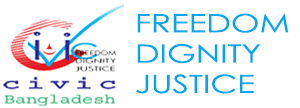




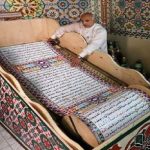
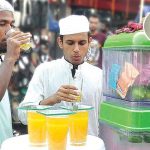
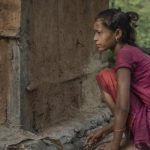




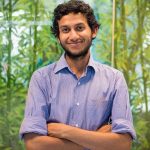



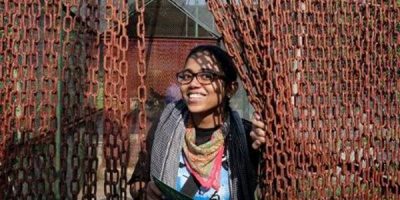
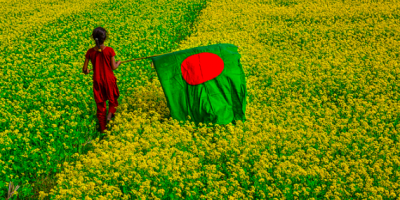

মন্তব্য চালু নেই